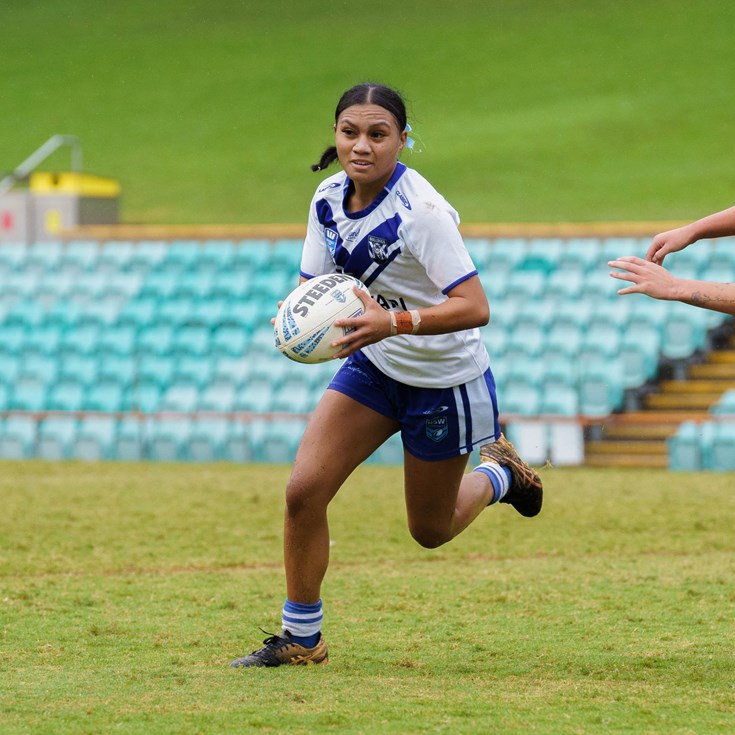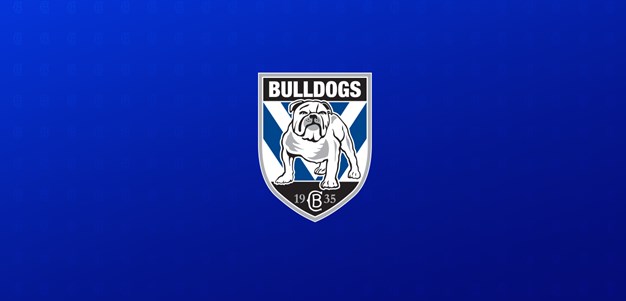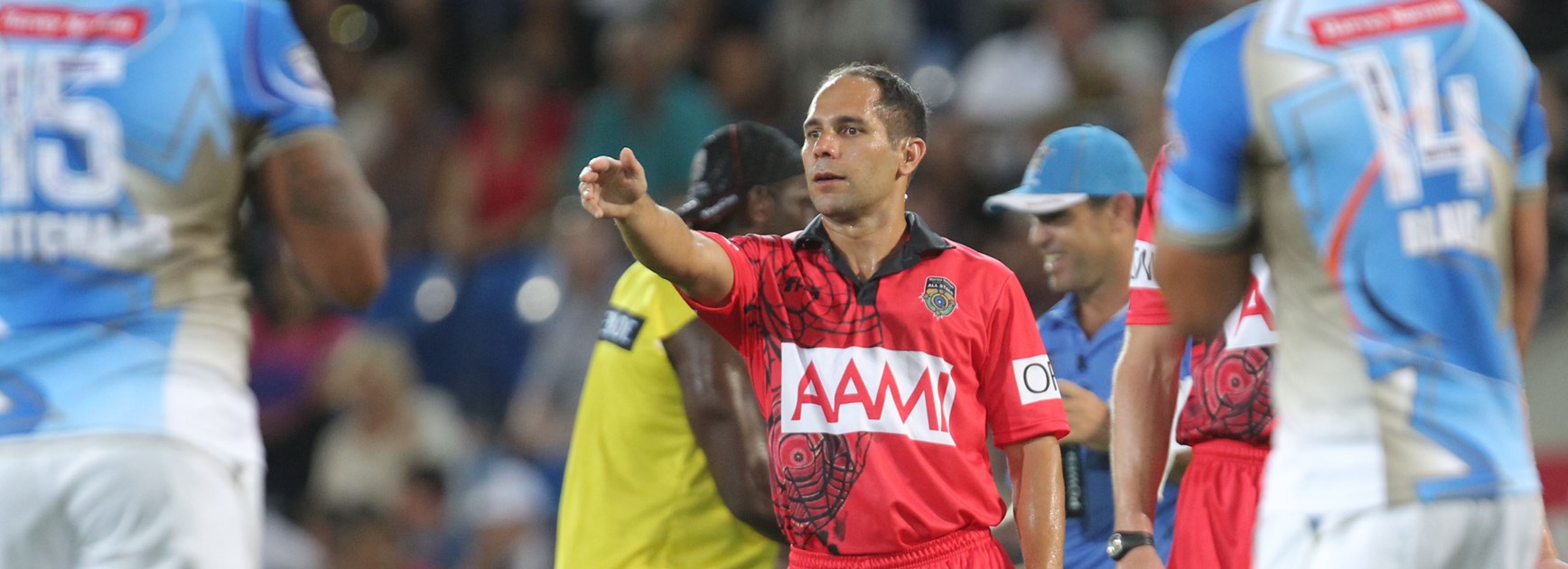
It was a discussion between NRL competitions general manager Nathan McGuirk and Bill Harrigan in 2012 that resulted in the new six-again rule which has transformed the game.
The instant success of the innovation launched last weekend has also put debate about reducing the interchange on the backburner.
The NRL had been looking at ways to reduce the impact of wrestling and McGuirk, who was then football operations director, suggested to Harrigan - the referees' boss at the time - that the rule be trialled in a match during the pre-season.
After speaking with rival coaches Wayne Bennett and Laurie Daley, it was introduced in the 2012 All Stars game on the Gold Coast and then quickly forgotten about by most people.
However, ARL commissioner Wayne Pearce remembered it and when chairman Peter V’landys proposed a return to one referee, the Balmain Hall of Famer suggested the six-again rule be considered to offset fears teams would attempt to exploit the ruck.
The outcome has been hailed as a massive success after the opening round of the rebooted season, although Harrigan and others caution it may be another month before a true assessment can be made.
Episode 5 - Dylan Brown and Andrew Abdo
With the eyes of the world watching as the NRL became the first collision sport to resume playing after the COVID-19 shutdown, the players and coaches delivered an exciting brand of football played at State of Origin-type speed.
"It exceeded my expectations for the first round and I think it is going to get even faster, to be honest," said Pearce, who had a decorated career as a player and coach at premiership and representative level.
The average ball-in-play time for matches increased by 2.49 minutes to 57.31m, resulting in the number of tackles made by each team increasing by 12 per cent to an average 359 and six sides making more than 2000 metres in possession.
James Tedesco, Josh Mansour and Brian To’o each carried the ball for more than 300 metres, while another 19 players ran more than 200 metres with the ball. In defence the players were just as tireless with St George Illawarra captain Cameron McInnes made 74 tackles – three more than Newcastle debutant Chris Randall.
Significantly, penalties were down 29 per cent from the first two rounds, although referees signalled six-again on 53 occasions across the eight matches.
Ruck roving
The increase in ruck infringements for which referees took action last weekend confirms the view that they had been reluctant to blow as many penalties as were warranted.
It was one of the reasons the six-again concept was considered and trialled in 2012.
"Where it actually came from was the referees admitting that they should be giving more penalties in the play-the-ball but they realised that penalties disjointed the game," Pearce said.
"The issue was how to create a disincentive without slowing the game down and that is where this six-again thought came from originally."
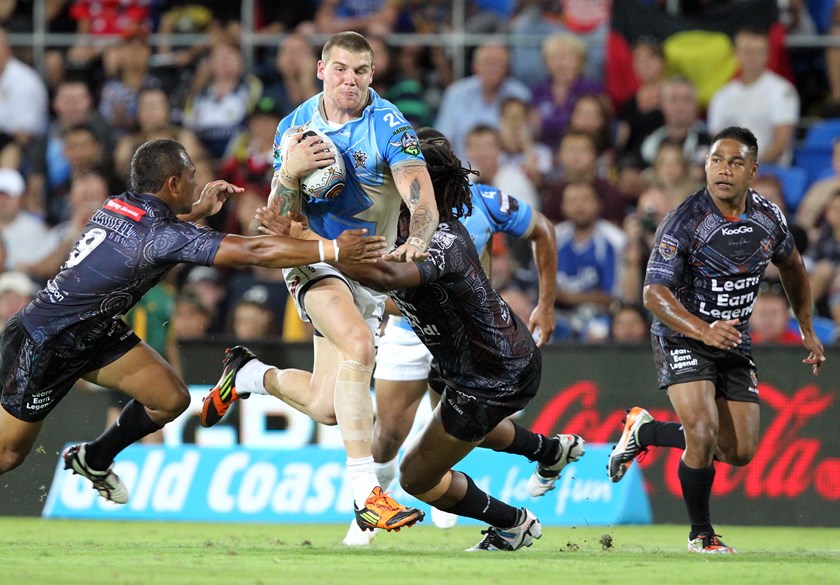
After the 2012 All Stars match, Bennett and NRL All Stars captain Benji Marshall spoke in support of the six-again rule being introduced to the Telstra Premiership but there was little other support.
"It was run past me to use in a game as a trial to see if it would work but there was a mixed reaction," Harrigan said.
"You can’t just do one game, especially in the game that it was. It wasn’t a premiership game where you have coaches saying we can flout the rules here a bit, we can do this or that – and that is going to happen over the next couple of weeks.
"So far, after the first weekend, I think it has absolutely worked. It speeds the game up and keeps it going, but you’ve got to give it at least five rounds and you can appraise it then because the coaches will start working on things to offset it."
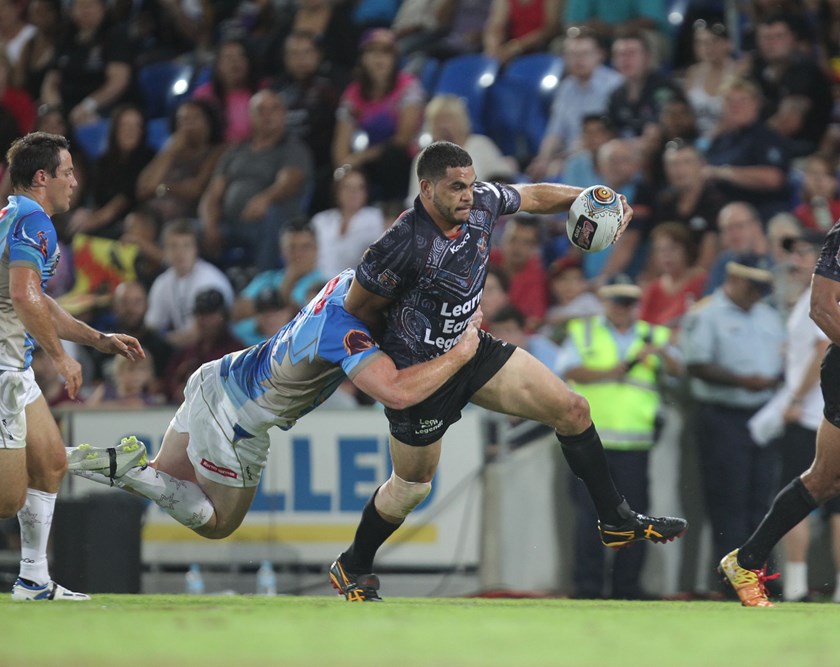
Let's not be conservative
Former premiership winning coach John Lang said the six-again rule had been discussed as recently as last year by the NRL competition committee but there was no great enthusiasm for it.
"One of the reasons they introduced the competition committee about 10 years ago or so was because people would race in to make changes and they hadn’t really thought about the ramifications," Lang said.
"The idea was that if someone came up with a new idea to have it picked to pieces and I think generally it has been good but sometimes when you have got all rugby league heads you can get a bit conservative.
"When you bring in someone from outside like Peter V’landys, whose expertise isn’t really rugby league, sometimes they see things with a fresh set of eyes."
V’landys, who has a long background in racing and is Racing NSW CEO, was keen for a return to one referee and the six-again rule was discussed at the final meeting of the Project Apollo committee, which was led by Pearce.
Bennett supported the idea but Sydney Roosters coach Trent Robison was among those with reservations. NRL head of football Graham Annesley, RLPA CEO Clint Newton and IRL deputy chairman Troy Grant were among the others involved.
"It was a call to action that if we were going to go to one referee then the referees needed a tool to help them," Pearce said.
"I think, as we have seen, it is just a brilliant tool for them
Annesley aims to stay ahead of coaches
"I remembered seeing it at the All Stars game and I thought that was a really fast game. I mentioned it to Graham Annesley.
"He got me a copy of that game and I thought there is a lot of merit in that. That is how we started the journey.
"We got a working group together that involved different stakeholders and there was some caution a few people but from my perspective there was not a lot of downside to it. It really is something where there is significant benefit."
Every try from round 3
Sudden impact a pleasant surprise
Pearce said he had been excited to view how the rule would be implemented in last Thursday night’s opening Broncos-Eels match but wasn’t anticipating the immediate impact it would have on the game.
Parramatta’s Marata Niukore scored the opening try after back-to-back six-again calls and the tone was set.
"I didn’t expect it to be accepted and embraced as well as it has been," Pearce said.
"The referees, I thought, did a fantastic job over the weekend implementing it and the players really adapted to it.
"There would have been a lot more six-again calls if the players had continued to wrestle like they had previously so the coaches had obviously done a lot of work to get them off quicker.”
Before last weekend, there had been renewed debate about reducing the interchange from eight to six per team to increase fatigue but Pearce believes the six-again rule could have a similar effect.
"There is probably no reason to even look at that at the moment," Pearce said.
"Because this is speeding the game up so much I don’t know if there is going to be any requirement to reduce the interchange because it is actually going to fatigue players a lot quicker."
I didn’t expect it to be accepted and embraced as well as it has been.
Wayne Pearce
Lang said he wanted to wait before declaring the rule an absolute success but liked what he had seen so far.
"I thought that there was less wrestling on the ground and if that is going to become a permanent thing I love it," Lang said.
"I think there is going to be an improvement because it is so seamless but it is like the new kid in town, nobody has found the bad parts of his personality yet."

